US election 2020: What is Trump's record on the environment?
- Published
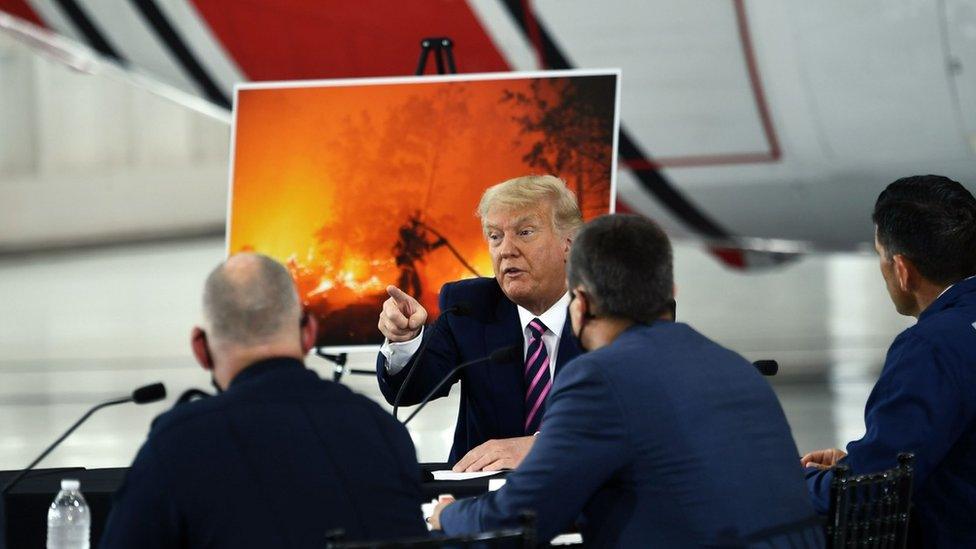
President Trump at a briefing on wildfires in California
With forest fires in the western US and a hurricane hitting the southern coast of America, President Donald Trump has caused controversy by questioning the science around climate change.
He has called himself a "great environmentalist", external, touting successes in conservation, wildlife protection and the banning of some off-shore drilling.
We have taken a look at what he has said and done on environmental issues.
Trump: "China's carbon emissions are nearly twice what the US has and... rising fast. Last year, America reduced its... emissions by more than any country in the [Paris climate] agreement."
Mr Trump is right about the total size of China's emissions compared to the US - but not when it comes to comparing China and the US in terms of emissions per person.
China produces nearly twice as much CO2 as the US, which is the world's second largest emitter of carbon dioxide.

However, per head of population, the US produces significantly more carbon dioxide than China.
As for the growth in carbon emissions, Mr Trump is right. China's emissions have risen considerably despite a slowdown from 2014 to 2016.
But Mr Trump's other claim that last year the US had reduced its emissions by more than any other country doesn't give the full picture.

In 2019, the US had the largest decline in energy-related carbon dioxide emissions by quantity, but not by percentage.
Between 2018 and 2019, the US reduced its emissions by 2.9% - but Germany's 8% and Japan's 4.3% reductions were much bigger.
Trump: "It'll start getting cooler. You just watch... I don't think science knows, actually."
These comments were in response to California Secretary for Natural Resources Wade Crowfoot, who said to the president: "We want to work with you to really recognise the changing climate."
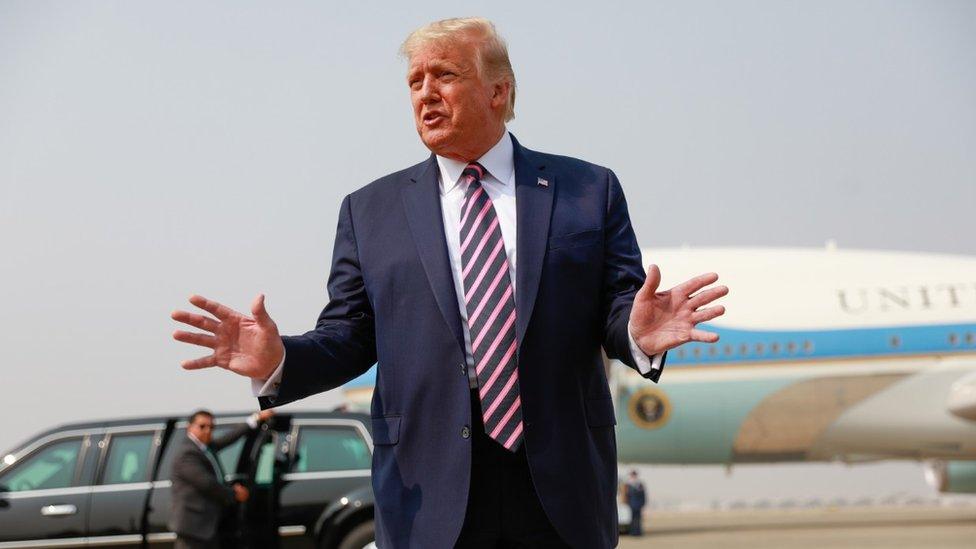
Mr Trump's record on the environment has become a controversial campaign issue
Mr Trump has received widespread criticism from scientific experts on this issue.
Dr Chris Brierley, an associate professor in climate science at UCL, said the world was getting warmer and would continue to do so.
"You'll have some anomalously cold years and some anomalously hot years but it is certainly going up," he said.
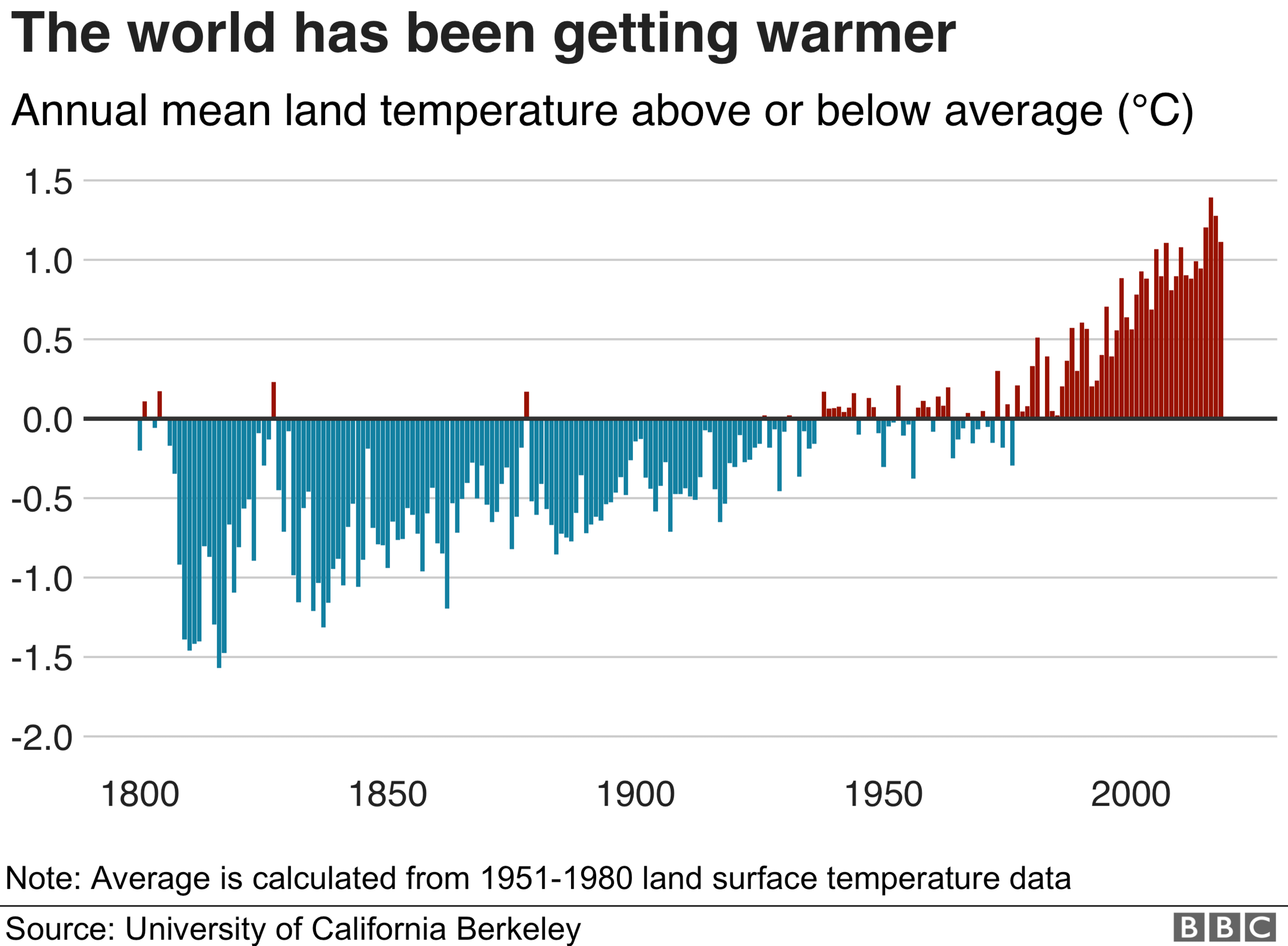
And there is an overwhelming scientific consensus these rising temperatures are being driven by human actions.
Nasa, the US space agency, says: "Multiple studies published in peer-reviewed scientific journals show that 97% or more of actively publishing climate scientists agree, external climate-warming trends over the past century are extremely likely due to human activities."
But the president has shown little, if any, commitment to tackling climate change and last year withdrew the US from the Paris accord, a multilateral agreement to tackle global warming.
Trump: "Right now we have the cleanest air we've ever had in this country, let's say over the last 40 years."
Over the past few decades, air quality - a measure of six major pollutants - has improved significantly in the US.
From 1970 to 2019, the overall level of these pollutants fell by 77%, according to the US Environmental Protection Agency (EPA).
And this trend has largely continued into Mr Trump's administration, with a 7% fall between 2017 and 2019, which is why the EPA says the US currently has the cleanest air on record.

But whether these achievements are a result of actions taken by the president or part of a longer-term trend away from polluting energy sources such as coal is contested by experts.
"The decisions of his administration to weaken numerous air-quality standards reveal his clear intent to worsen air quality in the long run," says H Christopher Frey, a professor at North Carolina State University and former chief of the EPA's air-quality scientific advisory board.
Other factors such as weather events can also have a heavy impact on pollution.
Trump: "I'm committed to ensuring the United States has the… cleanest water on Earth."
The US is ranked 26th in the world on sanitation and drinking water, according to Yale University's 2020 Environmental Performance Index, external (EPI).
On this ranking, Finland, Iceland, the Netherlands, Norway, Switzerland and the UK have the cleanest water.
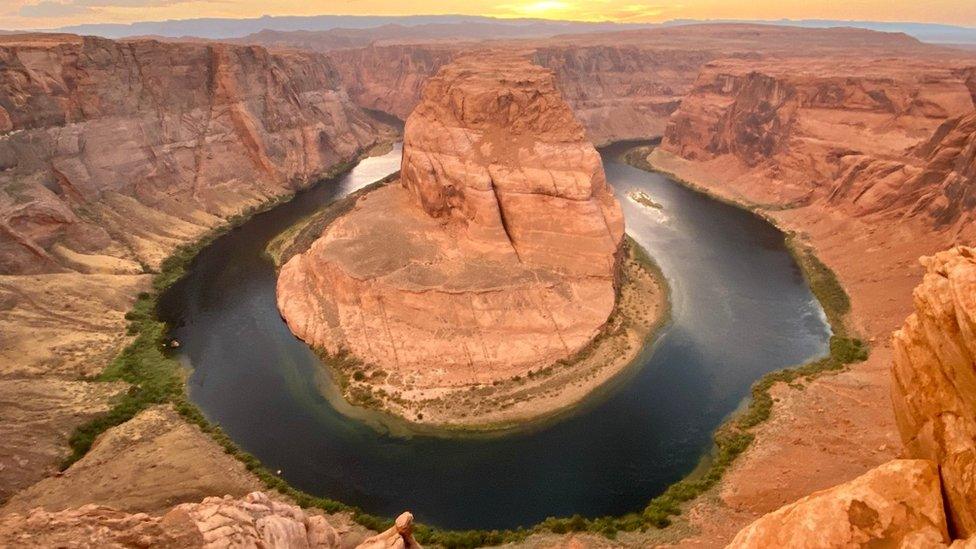
The Colorado River
The government has been criticised for repealing the 2015 Waters of the United States rule.
This had placed limits on polluting chemicals that could be used near bodies of water but was seen as restrictive for farmers and industrial workers.
"The revisions to the Waters of the US rule remove a significant number of waters and wetlands from the protection of the Clean Water Act, potentially impacting water quality and leading to the destruction of more wetlands," says Hana Vizcarra, an environment lawyer at Harvard University.
Trump: "I signed the Great American Outdoors Act, the most significant investment in our national parks in over a century."
The US Congress has approved $9.5bn (£7.5bn) of funding for national parks over the next five years.
The bill, supported by both Democrats and Republicans, will also increase by $900m a year funding for the Land and Water Conservation Fund, created in 1965.
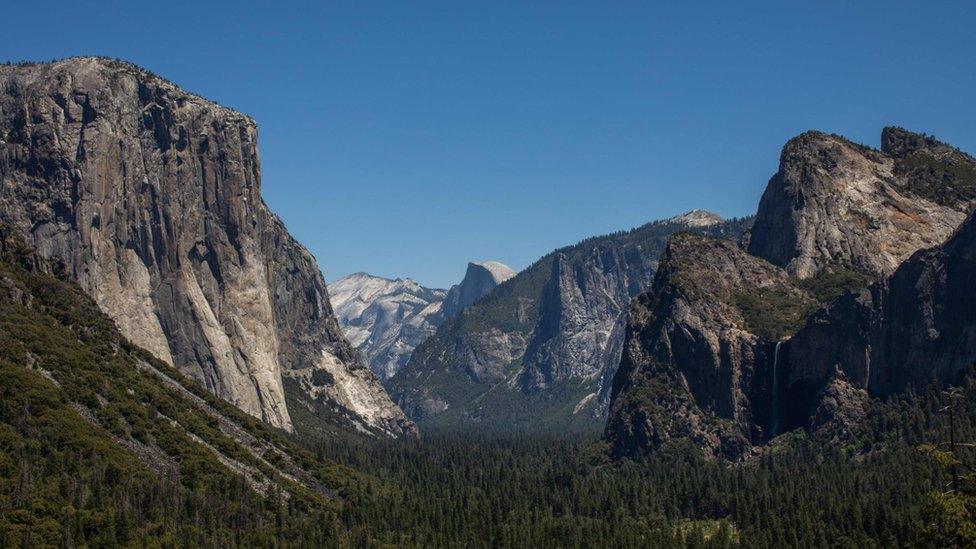
Yosemite National Park
President Trump had previously expressed support for cutting funding for conservation but changed his mind this summer, external and signed the bill into law.
"Passing the Great American Outdoors Act is quite simply the most significant investment in conservation in decades, external," National Wildlife Federation president and chief executive Collin O'Mara says.
And National Parks Conservation Association president and chief executive Theresa Pierno says: "This is the largest investment our country has made in our national parks and public lands in more than 50 years."


